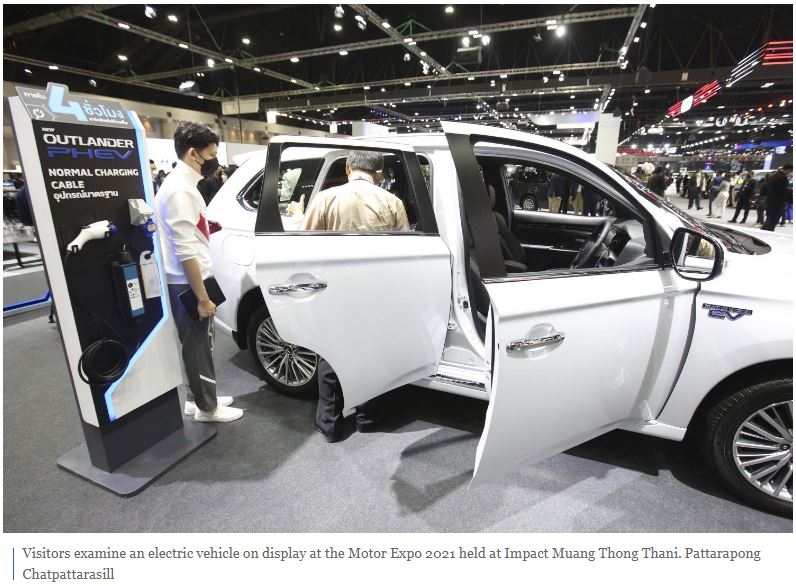Thailand: Ministry mulls revision of EV import duties
The Finance Ministry is considering a revision of the import duty rates for electric vehicles (EV) to make them more affordable for consumers, says Deputy Finance Minister Santi Prompat.
Mr Santi said the goal is to enable Thais to buy EVs at reasonable prices as part of the country’s EV promotion policy.
Thailand’s EV import tax rates vary. EVs imported from China enjoy a 0% tax rate under a bilateral agreement between Thailand and China.
Some EVs imported from Japan are subject to a 20% tax rate under the Japan-Thailand Economic Partnership Agreement. However, most EVs imported from Japan face an 80% rate as their Japanese content exceeds the level required to qualify for the lower rate.
EVs imported from South Korea face a 40% import tax, while those coming from Europe face an 80% import tax.
He said the government’s EV promotion policy initially focused on imported EVs before expanding to cover locally produced EVs.
The government is gathering opinions from concerned parties on its development of the EV promotion policy, which will then be forwarded to the cabinet, said Mr Santi.
He said many countries have set up EV battery plants in Thailand, including investors from Germany, China and Israel.
EV battery prices now stand at 70,000-80,000 baht, down from 200,000 baht previously.
Battery prices are expected to fall further once EVs become widely adopted.
Both automakers and consumers are waiting to see if the country’s official comprehensive EV promotion policy, which is expected to be announced this year, is attractive, said Mr Santi.
In December 2021, Finance Minister Arkhom Termpittayapaisith said the government planned to require automakers in Thailand to lower the prices of their EVs and produce them locally within three years for both domestic and export markets in order to obtain combined tax incentives and price subsidy support.
A price subsidy measure is slated for this year to support consumers wanting to buy fully electric vehicles.
In addition, the government set a deadline of 10 years for Thailand’s auto sector to transition from fossil fuel-powered vehicles to EVs, starting from 2022.
There are 40 million vehicles in the country powered by internal combustion engines, of which 20 million are cars and the remainder motorcycles.
Source: https://www.bangkokpost.com/business/2244803/ministry-mulls-revision-of-ev-import-duties


 English
English




